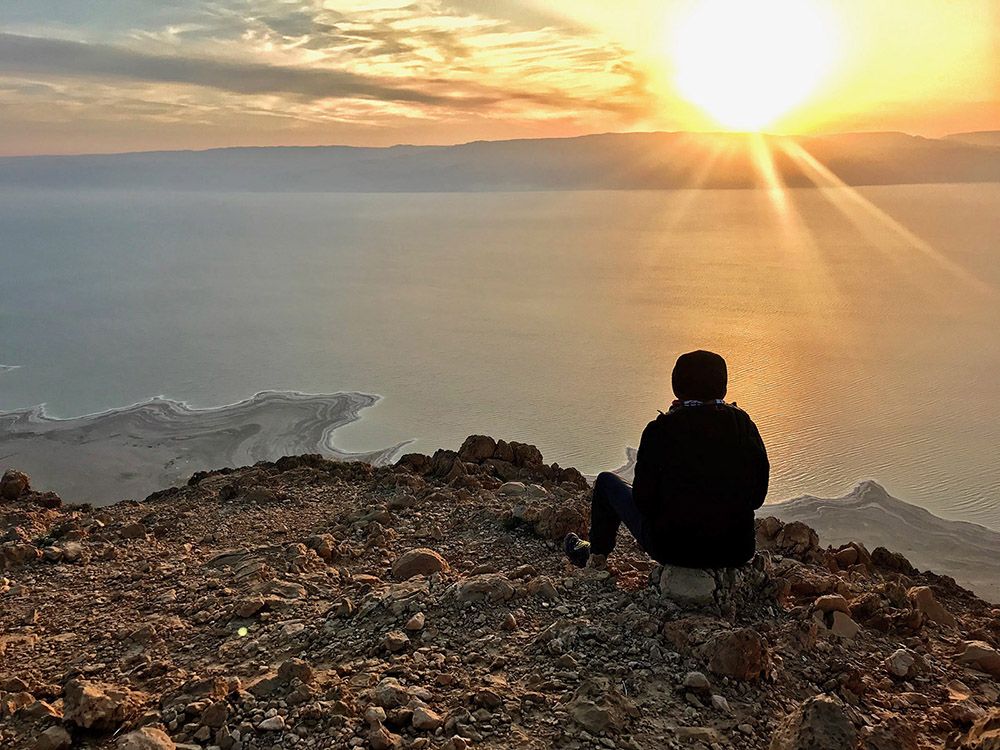Walking a Different Path – West Bank, Palestine

Credit to Author: Dave Pottinger| Date: Mon, 12 Aug 2019 19:05:56 +0000
When we first started telling people that we were going to hike in the West Bank, Palestine, they were incredulous.
You’re going where? You’re doing what?
Over a 3 week period, starting in Rummana at the northern Israeli/ Palestine border and ending in Beit Mirsim southwest of Hebron, the 330 km trail would take us over rocky hills and mountains, through green and fertile canyons, along olive groves and flowering pastures, across vast and dry deserts, each of these landscapes stunning and unique.
The next comment we often heard was one of fear….aren’t you afraid?
Hiking past Mar Saba, a Greek Orhodox monastery founded in 483 and now considered one of the oldest inhabited monasteries in the world still maintaining many of its ancient traditions.
William Ury who developed the vision of the path talks about it helping to change the world view of Palestine from one of hostility to hospitality, and from turning terrorism to tourism. “The opposite of terrorism is to take in innocent strangers and treat them as friends, to welcome them into your home and to show and create an understanding of respect and love.” That is exactly what we experienced.
We were welcomed like royalty in places that rarely see tourists. “Welcome to Palestine! Please enjoy our country! Can you come and sit and have coffee? If you wait a few minutes, we will bring you tea.” These were comments we heard continually and we were perfect strangers.
The name of the trail…Masar Ibrahim or the Abraham Path goes through Palestine and Jordan. The vision for the path is for it to eventually travel the entire path where Abraham would have walked, through these countries as well as Turkey, Syria, and Iraq.
One of our fellow hikers speaking with a local shepherd comparing walking sticks and hiking poles!
The story of Abraham is a common identity that is shared by Christians, Muslims, and Jews. Its history dates back 4,000 years to a man and his family who walked across the Middle East with a message of unity and connectedness, and whose values were kindness and respect for all people, and showing hospitality to strangers.
By walking side by side and shoulder to shoulder with others, the goal of the trail, the dream of its founders, is to bring people of all nations and backgrounds together.
The Masar Ibrahim that we experienced in Palestine did not fail to make this dream a reality. At every organized homestay and guesthouse, or in rustic Bedouin camps, we were welcomed as family.
We laughed, we talked, we played games, we heard stories about occupation and injustice, and we heard the pleas and prayers for peace. Over tea and coffee and fabulous food we were asked to go back to our homes and share their stories. By offering their delicious food, heaps of it, they showed how much they appreciated our company, our presence and our willingness to engage. Even under many restrictions and the pressure of the occupation, the Palestinian people are resilient, pursuing higher education and trying to find ways of nonviolent resistance. They will not give up hope for change. It may not happen in this generation, but then, hopefully, in the next one. They will continue to plan and work, to love and marry and have children, to build homes and friendships; and they will continue to dream of peace and equality.
One of the many valleys we walked through that was carpeted with wild flowers.
There are numerous agencies which will get you onto the trail, but we travelled with the Siraj Center (sirajcenter.org) based in Beit Sehour just outside of Bethlehem.
Having never travelled on a tour before, we had some reservations, but our fears were unfounded. The group was small, only seven of us doing the complete hike, and others jumping on and off at different places for varying amounts of time. The guides were accepting to everyone, eager to show us the beauty of a forgotten country and its people. Not only did they have an exceptional understanding of the history of the land but colored it brightly with amazing and wonderful stories and insight into the traditions and culture handed down through generations.
It is possible to do the hike without guides/tours but requries very good navigation skills and possible sudden changes to routes, due to some deviations that have to made within a society that is always having its borders challenged.
Agencies such as Siraj can help travellers with finding homestay lodging and places to stop for meals. They are willing to work with anyone to make the trail a possibility and can also provide guides for only portions of the trail if desired.
Out for a late afternoon hike in the desert with a bedouin host from our camp we happened upon their camel herd.
Palestine is a country that needs to be seen not only as a place of conflict, but as a land of great beauty with a deep richness to its people and culture, a country that is resilient and hopeful even in the midst of great oppression.
It is a country that must be experienced on the ground, among its families and its traditions. Go…go and see and hear and experience.
You will never regret it.
Suggested sites to plan your trip:
www.ted.com/talks/william_ury?language=en
`